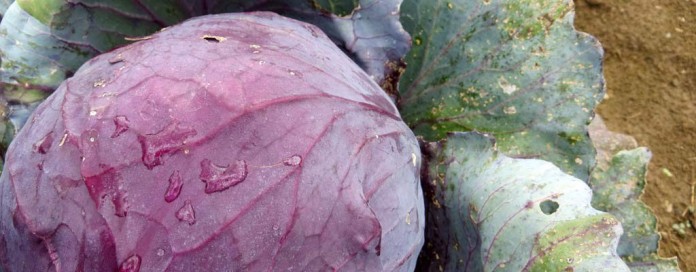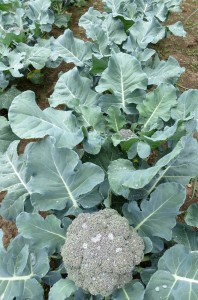Most gardeners get irrigation wrong. They water when plants appear thirsty or during an obvious dry spell. They turn off the sprinkler when the top soil looks saturated. Inefficient irrigation methods trick gardeners into thinking they’ve provided plants with adequate water, when very little of that water actually makes it to the plant’s thirsty roots.
How much water does my vegetable garden need?
Vegetable plants need 1 inch of water each week for optimal performance. Signs of water stress include: Wilting, brown leaf tips, slow growth, low production and stringy, off-tasting vegetables. Since vegetable plants often don’t show signs of water stress until it’s too late, gardeners must keep a close eye on how much water plants are getting and provide supplemental water as required.
Additional factors that affect irrigation needs
1 inch of water per week is sufficient for most vegetables, but you may need to water more or less depending on soil consistency, weather, garden location and stage of plant growth.
- Soil consistency affects the amount of irrigation water that is retained. Sandy soil does not retain water. Silt soil has medium texture and better water retention. Clay soil retains water very well.
- Hot sun, high temperatures and windy weather dry out soil and make plants thirsty.
- Garden location, layout and landscape also dictate water needs. Raised beds require more water because they have better drainage. Vegetable gardens located at the bottom of a slope require less water due to run-off.
- Newly planted gardens require more water than established gardens, especially during seed germination.
Water wisely
Place a rain gauge in the garden to monitor how much water nature provides your plants each week.
Measure how much water your sprinkler provides by setting a flat-bottomed dish in the garden, turn on the sprinkler and a timer, and mark time until 1 inch of water is collected in the dish. The amount of time it took to collect 1 inch in the dish is the amount of time you should water weekly if no rain falls. Adjust time based on rain forecast and accumulation.
Alternatively, use a single zone controller hose attachment to set the amount and rate of water flow to your garden. Aim to water at a rate of ½ inch per hour.
Irrigation water must soak 5-6 inches into the soil to reach roots and provide plants with a thirst-quenching drink. Even if the soil surface looks saturated, you may not have watered deep. This is especially true of clay soil that doesn’t absorb water easily. Measure moisture with a soil moisture probe, or stick a wood skewer 6 inches into the soil. If the skewer is easy to push in and pull out and comes out dirty, you have watered well. If you meet resistance you haven’t watered deep enough.
The best time to water vegetable gardens
Early morning irrigation is the best. Watering in the morning ensures moisture is available to plants during daylight photosynthesis.
Avoid watering during the hottest and sunniest hours of the day. Doing so wastes water through evaporation and may sun scorch plants.
If you water in the afternoon or evening, do it early enough for leaves to dry before sundown. Leaves left wet overnight promotes foliar disease.
4 tips for water conservation in the garden
- Applying mulch around vegetable plants helps maintain soil moisture.
- Choose plants with low water needs. Deep root crops require less water than shallow-rooted vegetable plants.
- Use efficient irrigation methods. Plants drink through their roots, not leaves. Drip irrigation delivers water most efficiently by watering close to the plant and nearest to the soil surface.
- Keep your garden weed free. Weeds steal water and nutrition from vegetable plants.















